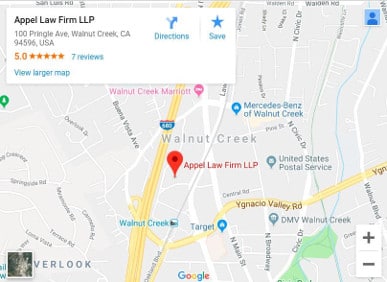When you place an elderly loved one – or yourself – in the care of a nursing home, assisted living facility, or institution, you’re putting a great deal of trust in the skill, judgement and compassion of the facility’s staff and management. If this trust is betrayed, and nursing home abuse is occurring, it can be devastating.
Each year, an estimated 4 million Americans aged 65 or older suffer from some kind of physical abuse, neglect or exploitation, according to the American Psychological Association. While close relatives make up the vast majority of abusers, service providers in care facilities can be abusive as well. In fact, in one study 44% of the 2,000 nursing home patients surveyed reported having been abused. A shocking 95% of them reported having seen another patient being abused. (Source: The National Center on Elder Abuse)
Sadly, most incidents of elder abuse go unreported. The victims are often too frightened to speak out, or they lack the mental or physical capacity to do so. Elders with dementia are at highest risk of being abused – the perpetrators know these victims are least likely to defend themselves or be seen as credible.
If you suspect an elderly person in California is being physically abused in a care facility or elsewhere, take action quickly. Every citizen, particularly the most frail and vulnerable, deserves to be treated with dignity and respect.
What is Elder Physical Abuse?
- Inflicting physical pain by hitting, pushing, slapping, kicking, pinching, tripping, beating, shaking or burning
- Over or under-medicating or using drugs and tranquilizers inappropriately
- Using physical restraints or physical punishments
- Refusing the elder helping devices such as hearing aids, walkers, canes or dentures
- Force-feeding
Signs of Elder Physical Abuse?
You might have difficulty recognizing signs of physical abuse of an elder as they often overlap with signs of dementia or increasing frailty. However, because some abusive caregivers use an elder’s diminished physical or mental capacities as a cover for the abuse, always view the following signs with suspicion:
- Bruises, cuts, welts, lacerations, swelling, bleeding, black eyes, cigarette burns
- Dehydration, malnutrition, bedsores
- Wincing or indicating pain upon being touched, broken bones, fractures
- Injuries that are inconsistent with their purported cause
- Unusually withdrawn, fearful or angry behavior
- Increased fear or anxiety around certain care providers or administrators
- Reports from elder that he or she is being abused.
What you should do if an elder is being physically abused?
- If the person is in life-threatening danger, call 911 or the police immediately.
- For abuse in private homes, report the abuse to Adult Protective Services (APS) in your county (call 1-800-510-2020).
- For abuse in long-term care facilities, call your local long-term care ombudsman (call 1-800-231-4024 to find the right one).
Consult an Elder Abuse Attorney
Once your loved one is out of immediate danger and has received proper medical attention, contact an elder abuse attorney. An experienced attorney can help prevent further abuse and help discern whether the elder may be entitled to financial damages for past and future medical expenses, pain and suffering, and/or punitive damages.
The elderly abuse lawyers at the Appel Law Firm LLP are dedicated advocates of elderly victims who have suffered abuse in nursing homes, institutions and other long-term care facilities throughout California.
